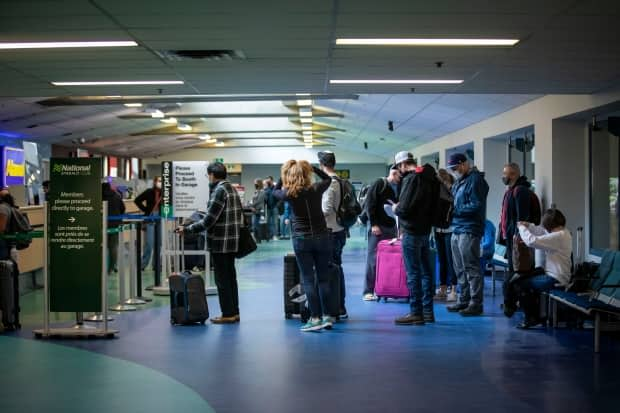Ontarians look to alternatives as car rental shortage persists, prices remain high

As rental car operators continue to face vehicle shortages, some people are looking at different options for renting a car due to the limited availability and sky-high prices.
Peer-to-peer car rental apps are also reporting a drastic increase in demand this year among Canadians looking for short-term rentals using their subscription service, particularly in Ontario.
"The demand is up, the supply of cars is gradually recovering from being fairly scarce because of all the cancelled production during the pandemic and of course, [the] shortages of the components like semiconductors," said David Johnston, director of the George Weston Ltd Centre for Sustainable Supply Chains at York University's Schulich School of Business.
"So you've got the perfect storm here."
Johnston said the root cause of the current car rental shortages seen in Canada and across the world is revenge travel this summer, as people looking to make up for vacations lost due to the COVID-19 pandemic are travelling in droves.
"I think this is one of those continuing ripples," he said.

"As we adjust to the post-pandemic economy, a lot of these things will even out and the ripples get smaller after a while."
For short-term rentals, rates at Toronto Pearson International Airport can start at $120 each day for a standard sedan.
Ontarians turning to subscription-based rentals
Rabia Dar said she moved to Etobicoke in March thinking she wouldn't need to own a car to get around the city. Coming from the Netherlands, where she relied on public transportation, Dar said she thought she would have no reason to drive.
But after having to take trips downtown, working in the office more often and wanting to go on weekend trips to explore the province, Dar decided to look into long-term car rentals.
"If I want to go downtown, it will take me an hour by bus and then metro and depending where I'm going. So having a car, I think it's essential," Dar said.
"I have plans with my friends in Ottawa, I'm actually going this weekend to a lavender farm. [The car] gives me the flexibility to explore the surroundings and get to know my new home."

Dar said the cheapest price for a sedan with basic options that she could find at the time was $2,000 per month. She also looked at leasing options but said she did not want to be tied to a two- to five-year minimum lease.
Eventually she came across, Curbo, a subscription-based car rental service now known as Roam which allows users in Ontario to rent a sedan or SUV with insurance, routine maintenance and roadside assistance included without the long-term commitment. Dar said she rented a 2022 model sedan for four months at just under $1,200 per month.
Car-sharing sees massive hike in demand
Canada's largest car-sharing platform, Turo, says it has seen a drastic jump in demand this year for car rentals. The company connects local car owners with travellers, allowing them to rent out their personal vehicles through an online platform, similar to Airbnb.
Across Canada, summer bookings between May 27 and Sept. 6 are up over 350 per cent year-over-year, a Turo spokesperson told CBC Toronto.
In Toronto, bookings in that same time period are up nearly 200 per cent in comparison to last year.

Turo said Calgary, Toronto and Montreal are the top destinations for the company this summer. Nova Scotia is its fastest growing province with summer bookings up more than 3,000 per cent this year.
Since 2016, the company said it has expanded its car sharing platform in Canada to more than 1.2 million members and 53,000 car rental listing across the country.
Supply projected to remain tight
Some car rental companies had sold off their fleet of vehicles earlier in the pandemic, and experienced a shortage in supply as travel picked up and more people began to take trips earlier this summer.
Now, some companies are not accepting bookings of three or fewer days, which are not as profitable as long-term bookings, said Craig Hirota, vice-president of member services for the Associated Canadian Car Rental Operators.
"In terms of rental vehicle supply, although things can change quickly in the event of slowing retail demand, consensus right now is that supplies will remain tight for the foreseeable future," Hirota told CBC Toronto.
"The relative scarcity of new vehicle allocation and supply chain issues affecting the supply of parts are creating cost pressures associated with the maintenance and repair of vehicles."

